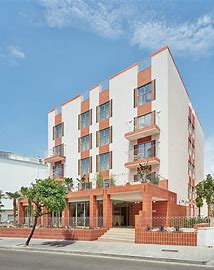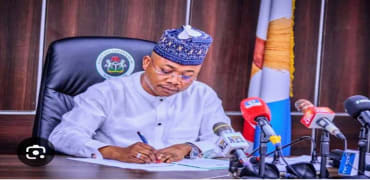FG’s Billion-Dollar Plan to Turn Abandoned Buildings Into Affordable Housing Unveiled
FG’s Billion-Dollar Plan to Turn Abandoned Buildings Into Affordable Housing Unveiled
By Achimi Muktar
The Federal Government has unveiled a bold initiative to tackle Nigeria’s housing crisis by transforming underutilized properties into revenue-generating projects for affordable housing.
At the Renewed Hope Housing Public-Private Partnership (PPP) Summit in Abuja on March 17, 2025, the Minister of Housing and Urban Development, Arc. Ahmed Musa Dangiwa, announced the creation of a Special Purpose Investment Vehicle (SPIV)—a financial mechanism designed to redevelop abandoned government-owned properties and prime federal land into housing solutions for millions of Nigerians.
A Game-Changer for Nigeria’s Housing Sector
With Nigeria’s housing deficit estimated at over 20 million units, the government is under pressure to deliver at least 500,000 homes annually, requiring a staggering ₦5 trillion ($6.25 billion) per year in investments.
Dangiwa emphasized that traditional government funding alone cannot close this gap, making innovative financing and public-private partnerships (PPPs) the key to success.
"We are exploring creative ways to optimize underutilized federal assets, including dilapidated buildings and prime land. The SPIV will ensure these assets generate revenue to fund large-scale housing projects," Dangiwa stated.
More Than Just Housing: A National Strategy
Beyond property redevelopment, the Federal Government is also strengthening its housing data infrastructure. The National Population Commission is collaborating with the Ministry to create a National Housing Data Infrastructure, ensuring reliable statistics for better policy decisions.
Additionally, Nigeria has intensified its partnership with UN-Habitat, committing $500,000 annually to support urban development initiatives.
The Renewed Hope Cities Project—A Massive Housing Push
The government’s flagship Renewed Hope Cities programme aims to deliver 100,000 housing units nationwide, with key cities like Abuja, Lagos, Kano, Maiduguri, Enugu, Port Harcourt, and Nasarawa set to benefit first.
Financing for an initial 5,000 units has already been secured through Shelter Afrique Development Bank (ShafDB), marking the first direct collaboration between Nigeria and the pan-African housing finance institution.
Private Sector Key to Success
ShafDB’s involvement goes beyond funding—it will also provide:
Technical advisory services
A housing market assessment using its VIRAL model
A housing deficit reduction strategy with three PPP transaction models
Identification of private sector partners and structuring of market-driven PPPs
Training, workshops, and policy development support
The Minister urged private developers and financial institutions to align with the government’s vision, calling on the Infrastructure Concession Regulatory Commission (ICRC) to streamline PPP regulations for faster housing delivery.
A New Era for Affordable Housing?
The summit concluded with the signing of a Memorandum of Understanding (MoU) between the Ministry and ShafDB, followed by an award recognizing Dangiwa’s contributions to Nigeria’s housing sector.
With these bold initiatives, the Tinubu administration is signaling a major shift in how Nigeria tackles its housing crisis. The big question remains: Will these ambitious plans translate into real homes for Nigerians, or will bureaucracy slow them down?
For now, the government’s message is clear—no asset will go to waste in the fight to provide affordable housing for all.






















